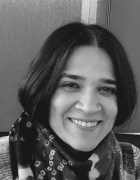Graduate Alumni Profiles
Rahul Munshi, PhD ( 2018 )
Thesis Title:
Advisor: Arnd Pralle (Biological Physics)
Current Position: Associate Research Scholar, Princeton University
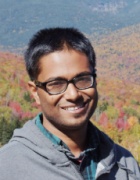
Sujay Singh, PhD ( 2016 )
Thesis Title: Metal-insulator and charge ordering transitions in oxide nanostructures
Advisor: Sambandamurthy Ganapathy (Condensed Matter Exp.)
Current Position: Principal Reliability Engineer at ON Semiconductor
The rigorous training during the coursework and graduate research improved my ability to think critically and creatively, improved my communication skills, prepared me to work well under pressure, and developed my ability to network effectively. The Department of Physics provided me an opportunity to start disciplinary and interdisciplinary research collaborations with faculty members right from the beginning that led to several publications in high-impact journals.
I joined Fairchild Semiconductor as a Reliability Engineer IV in October 2015 before my graduation in February 2016. In September 2016, Fairchild Semiconductor was acquired by ON Semiconductor. Currently, I am working as a Principal Reliability Engineer at ON Semiconductor, Mountain Top, PA.
My job responsibilities include thermal and mechanical characterizations of electronic packages including thermal impedances, materials surface interfacial properties, safe operating area, electrical and mechanical degradation from power cycling, and other reliability tests. I am working with process, device, and packaging development teams to assess the reliability of new power semiconductor products, the impact of changes in existing power semiconductor processes and packaging, including reliability relating to chip-package interactions. In addition, I am working with product engineers to estimate failure rates on power semiconductor products and ensuring products meet and exceed applicable industrial standards.
My advice is to determine your area of interest, identify an advisor/research group, and start working on your graduate research as early as possible. Manage your time effectively, be persistent, and collaborate as much as possible.
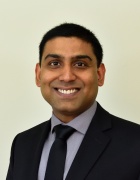
Azadeh Moradinezhad Dizgah, PhD ( 2013 )
Thesis Title: Scale-invariant Perturbations: Model-independent Analysis of Alternatives to Cosmic Inflation
Advisor: William H. Kinney (Cosmology)
Current Position: Maitre Assistant University at Geneva
Overall, I can summarize my years at UB as a period that transformed me from a green graduate student, enthusiastic about how the universe works, to a knowledgeable, skilled, and independent scientist capable of investigating the laws of nature.
Several factors contributed to this picture: In the early stages of my PhD, I benefited from the courses offered by the knowledgeable physics faculty. At later stages, the mentorship of my advisor was the most important factor. Through our scientific discussions and collaboration, I accumulated not only technical skills and knowledge in cosmology, but also learned how to perform, interpret, and write science. Moreover, my TA experience gave me a taste of teaching physics – an essential part of any academic career.
A common academic path in my field, theoretical cosmology, is to spend a few years as a post-doctoral researcher before applying for a faculty positions. This is an important stage in academic development, as it serves as a transition phase to establish oneself as a mature, independent scientist. After graduating from UB in May 2013, I took a post-doctoral fellowship in the Department of Theoretical Physics of the University of Geneva in Switzerland. Upon completion of this three-year research position in September 2016, I came to Harvard University for my second post-doc.
I am a theoretical cosmologist, and currently a post-doctoral fellow in the Department of Physics at Harvard University. My research interests are focused on understanding the physics of the early universe, both from the theoretical perspective and through observational constraints. We are living in an exciting era for cosmology as our understanding of the origin of the universe and the evolution of structure within it is taking greater strides than ever, thanks to ample high-quality data from various current and upcoming cosmological surveys.
Taking advantage of this high-precision data to its full potential requires accurate theoretical modeling that describes the observables and connects them to the fundamental theories. For instance, by mapping the distribution of galaxies in the universe and studying their statistical distribution, we can constrain theories describing the early universe and what gave rise to the seed of the observed structure.
My research is primarily focused on building such models. Like many of my colleagues, a typical work day for me begins with reading new articles published by peers around the world. This enables me to stay up-to-date on the most recent findings in my field. After that I start working on my own research projects. This can involve traditional calculations with pen and paper, or writing a computer program to solve the equations numerically. In addition to working on my own on a particular problem, an indispensable part of my job is to interact with other researchers to brainstorm and discuss a given problem. This can mean a discussion in front of blackboard or attending seminars by a fellow researcher. This is a crucial part of being a researcher, as many ideas form and develop through discussions and interactions with peers.
Let’s start with the obvious: work hard and take advantage of all the resources the university has to offer. Choose
your research field carefully and find something that you are passionate about. The graduate school is an invaluable time to learn and build your knowledge. It is a time of hard work and at times it can be challenging, so working on something that you are passionate about helps you get through the challenges.
Always remember that your advisor and the other faculty in the department are there to provide you with the means of reaching your goals, but you are the one that should take control of your path. Be proactive, go to conferences, interact with researchers in your field other than your advisor, start new collaborations when there is an opportunity. This way, by the time you reach the end of your time at UB, you are ready to continue your path as an independent thinker. Whether you stay in academia or continue to a non-academic job, this is the most valuable achievement of graduate school.
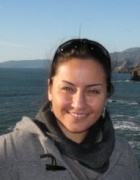
Heng Huang, PhD
Graduating Year: 2013
Thesis Title: Magnetic Stimulation of Neurons and Study of Membrane Structures
Advisor: Arnd Pralle (Biological Physics)
Current Position: Senior Staff Engineer at Illumina, San Diego, CA
My PhD work involved developing novel biophysical techniques for either studying or manipulating cell membrane signaling. The fact that my graduate research was interdisciplinary in nature helped me obtain a systems view for complex problems, which is extremely valuable for working at a biotech company whose projects are almost always multidisciplinary. Though my degree was in Physics, I had hands-on experience in microscopy, instrumentation, cell biology, molecular biology, surface chemistry, and programming during grad school. This experience of doing whatever it takes to get the job done helped me feel comfortable stepping into any new territory, which is something we have to do fairly often in a fast-pace work place like Illumina.
After completing my PhD program at UB in February 2013, I stayed in Dr. Pralle’s group as a post-doctoral fellow to continue my work on magnetic neuron stimulation and bimFCS. I moved to San Diego and started working at Illumina, industry leader in next generation sequencing, in December, 2013 and have been here since.
I work as a Scientist II in the Metrology and Physical Systems group under Consumables Product Development. The department is responsible for developing Illumina flowcells, reagents and other consumable products, and our group consists of highly talented physicists and analytical chemists, who are responsible for developing novel measurement tools for quantifying the input parameters and response metrics for critical product functions as well as manufacturing processes. During my 3.5 years so far at Illumina, I have developed new analytical methods for characterizing unique, critical processes, optimized surface chemistry for a brand new technology interfacing biochemistry, electromagnetism and fluidics, and led a number of root cause analysis efforts building understanding of highly integrated and interactive systems.
Do not limit yourself to your field of specialization. Take every opportunity to expand your horizon, learn about other people’s perspectives, and collaborate across disciplines. You don’t need to be an expert in every field, and you can’t. But it gives you great advantage if you can understand beyond your own expertise to the extent of being able to communicate intelligently and work effectively with people of other disciplines. Also, spend time to think about what you want in your life and for your career, what your strengths and weaknesses are, what brings you gratification and what makes you feel alive. The more you know about yourself the more focused and effective you’ll be. Last but not least: if you want something, go get it! Don’t wait for an opportunity to come to you, make it happen yourself! You ARE the master of your own destiny, so go ahead and create it!
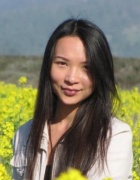
Hemachander Subramanian, PhD
Graduation Year: 2012
Thesis Title: Interaction of Magnetism with Atomic Lattice Geometry and Nanoscale Geometric Frustration
Advisor: Jong Han (Condensed Matter Theory)
Current Position: Assistant Professor, National Institute of Technology Durgapur LinkedIn
A PhD in Physics provided me with the training to identify unanswered questions, and to construct models that are capable of providing insights into the mechanisms under consideration, which then could lead to answers for the questions. Creating mathematical and computational models is both Art and Science, in that there is no one “best” way to do it. The experience of creating models for physical systems provided the grounding and confidence needed to approach the more complicated biological systems.
Soon after my defense, I took up a post-doctoral position at Moffitt Cancer Center and Research Center, Tampa, FL. I got promoted to the position of Staff Scientist in 2016. I then moved back to India for an assistant professor position at National Institute of Technology Durgapur, West Bengal, India, in December 2018.
My job responsibilities here include teaching B.Tech, M.Tech, M.Sc and Ph.D students, guiding graduate students towards Ph.D, and overseeing research projects of M.Sc students, apart from conducting research. My research focuses on investigating some fundamental questions at the interface between Physics and Biology, and to design computational experiments to study, understand and possibly answer those questions. I have been working on developing Physics-inspired modeling approach to understand structural and functional properties of DNA. The goal is to explain the absence of certain symmetries in DNA through “Symmetry Breaking”, a fundamental concept in Physics. Another goal is to understand the information-gathering ability of living systems in general and DNA in particular.
Make the best use of your time. A PhD is open-ended and can become a long saga if one is not planning to conserve time. Be aware of the very real conflict between doing what you enjoy doing, and what society wants outside the ivory towers of academia. If economic survival is your priority, prepare yourself for jobs outside academia right from the beginning, while pursuing your PhD.
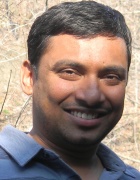
Andreas Stier, PhD
Graduating Year: 2011
Thesis Title: Far Infrared Magneto-optical Studies of Spin Effects and Off Diagonal Conductivity in the Integer Quantum Hall Regime
Advisor: Bruce D. McCombe (Condensed Matter Experiment)
Current Position: Assistant Professor Technical University Munich
My first position after UB was a direct continuation of what I developed during my PhD. I built a system that could rapidly and accurately measure the polarization of light in the terahertz regime. Even today, a setup like this is not commercially available, but it is incredibly useful to study (for example) quantum effects in condensed matter materials. After we had the system, we also had to develop the theory and algorithms to analyze the data, so in a sense we had to build everything from scratch. This was the skillset that I learned at UB, which matched the needs for my prior position at Johns Hopkins.
After graduating from UB, I immediately moved as post-doctoral fellow to the Department of Physics and Astronomy at the Johns Hopkins University in Baltimore. From 2013-2014, I moved my family to the other side of the world to Singapore, where I was a senior research fellow at the Graphene Research Center. Then, in 2014, we moved to the National High Magnetic Field Laboratory at Los Alamos National Laboratory in New Mexico, where I am a post-doctoral fellow.
I am conducting optical spectroscopy in high to ultra-high pulsed magnetic fields on a variety of condensed matter systems. We are trying to understand the electronic structure of materials that cannot be understood with typical laboratory- type magnets. I am running a destructive magnet system – which explodes every time we pulse it – that reaches magnetic fields in excess of 200 Tesla. Doing experiments in such an environment is obviously tricky, so we have to develop our own experiments from the ground up. As the National Magnet Lab is a user facility, I am also helping outside users to run their experiments with our “smaller” 65 Tesla systems.
The Department of Physics, and other science departments at UB, offer plenty of opportunities to collaborate and gain knowledge, so take advantage of it! Building professional relationships with people in other disciplines and gaining experience and an understanding of different/adjacent fields is invaluable for your success, in graduate school and beyond. By the way, this is also true for the very broad cultural experiences that UB has to offer! Because the student body at UB is so diverse, it is a wonderful place to gain points of view from many different cultural backgrounds – something that I find is one of the most timportant points of the on-campus experience of higher education. With respect to your own skillset, have the audacity to become the very best at what you do. You are competing in a global job market, so the world is your benchmark.
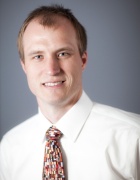
Pratibha Dev, PhD
Graduating Year: 2009
Thesis Title:
Advisor: Peihong Zhang
Current Position: Associate Professor Howard University
